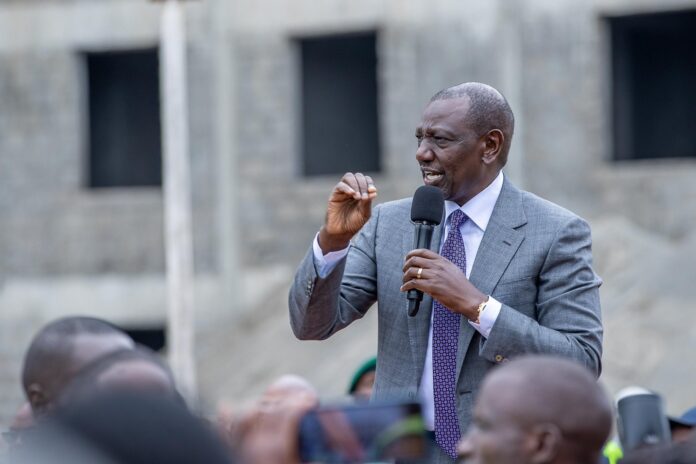Kenyan President William Ruto on Wednesday issued a stern warning to those he accused of trying to “overthrow” his government through what he called unconstitutional means, ordering police to shoot violent demonstrators in the leg if necessary.
Speaking to supporters in Nairobi in Swahili, Ruto condemned what he described as orchestrated chaos and destruction aimed at forcing him out of office before his term ends in 2027.
“This country will not be destroyed by a few people who are impatient and want a change of government through unconstitutional means,” he said. “You cannot sponsor violence and go scot-free… Any attack on police will be treated as a declaration of war.”
The comments, his harshest yet since the protests began, come days after 31 people were killed in nationwide demonstrations. Over the past two months, at least 51 people have died, with hundreds arrested and many others wounded, according to rights groups and AFP tallies.
Ruto, elected in 2022, said police should wound, hospitalize, and prosecute violent protesters instead of letting them continue unchecked.
The demonstrations, which began last year as youth-led protests over taxation, forced the withdrawal of a controversial finance bill but have since evolved into broader outrage over economic hardship, corruption, and alleged police brutality.
Last month’s rallies marked one year since protesters stormed parliament on June 25, 2024, leaving at least 60 dead, according to rights groups.
Opposition figures, including Ruto’s former deputy and ally Rigathi Gachagua, have accused his administration of unleashing state-sponsored violence against citizens and cracking down on dissent. Officials have compared the protests to an attempted coup, while protesters say the government is using paid vandals to undermine their movement.
In a nation where the majority of people have low-paying, unstable employment and many young people perceive little opportunities due to high taxation and growing inequality, the unrest is a reflection of growing dissatisfaction.
The United Nations voiced concern over the latest violence, saying it was “deeply troubled” by the civilian deaths and reminded authorities that “intentional lethal force by law enforcement officers, including with firearms, should only be used when strictly necessary to protect life from an imminent threat.”
Social media campaigns have further fueled public anger, amplifying calls for accountability and reform. The protests show no sign of abating as Kenya’s youth demand greater economic and political inclusion in a climate of mounting tension.

